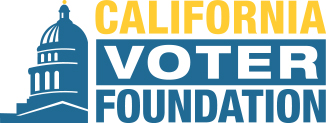California and other key states take a very long time to count votes.
Excerpt:
If you’ve been nervously counting down the days until the November 6 election, we’ve got some bad news for you: You might have to wait quite a bit longer before you know who will control the House. That’s because roughly a dozen key races are taking place in states where election officials often spend days or even weeks counting votes, making it difficult for media outlets to project the winners of close contests.
California—home to at least seven competitive House races, according to the Cook Political Report—can take an especially long time to tally results, thanks in part to the state’s expansive vote-by-mail system. In 2014, the Associated Press couldn’t call the victories of Reps. Ami Bera and Jim Costa until more than two weeks after Election Day. Two years later, it took the AP 20 days to call California’s 49th congressional district for Rep. Darrell Issa. The state’s “top-two” primary took place on June 5 this year, but it wasn’t clear which candidates would move on to the general election in the 48th congressional district until June 24.
“The length of time it takes to come up with definitive results drives a lot of folks in the world of politics crazy,” says Darry Sragow, a longtime California political strategist and USC political science professor. “You’ve got candidates and campaign workers and party leaders and voters who are hanging on, waiting for the outcome, and in a close race you may not know for quite some time who the winner is.”
-----
The reason some California races are counted at a snail’s pace—aside from the sheer number of votes in the country’s most populous state—lies in the steps officials have taken to try to maximize voter participation.
Overall, says California Voter Foundation president Kim Alexander, “I think we do a much better job than other states on several fronts.” These include election security and verification—and making voting and registering to vote easier and more convenient.
“Most importantly,” Alexander says, “the biggest shift that’s happened in California in the last couple decades is that we have a growing number of voters who are voting by mail.”
In the 2016 general election, nearly 60 percent of Californians who voted did so by mail. In the 2018 primaries, that figure was nearly 70 percent.
-----
Under a new law, officials are required to attempt to inform voters about problems with their signatures so the voters can fix them. Haste is not mandatory, though. Officials have as long as 23 days after the election to notify voters, who would then have to verify their signatures—which they can do by mail, email, or fax, or in person—within 29 days of the election.
Then there’s conditional registration and provisional voting. Conditional registration is aimed at people who missed the voter registration deadline. In many states, these people are simply out of luck. Even in California, they aren’t allowed to vote by mail or at their local polling place. But they can register—and cast a ballot the same day—at designated locations, usually their county elections office. That ballot will be counted on the condition that officials can confirm the person is eligible to vote.
-----
Election-watchers have voiced some concerns about provisional ballots, and voters have expressed skepticism that they are all counted. (Only a small percentage of provisional ballots in California get rejected, however—just 1.32 percent in 2016 and half a percent in 2014, according to MIT’s Elections Performance Index.)
At the same time, the United States Commission on Civil Rights has criticized the “indiscriminate use of provisional ballots” in California.
“This upsets me,” Alexander says, referring generally to the criticisms of policies designed to make voting easier. “People say, ‘Oh, California has so many people voting provisionally. That means that they don’t have their act together.’ Well, no—we’re giving people a failsafe that other states don’t give them, and we’re trying to make sure we can count as many ballots as possible.”
“I look at some of these other states that are like, ‘Oh, our election’s over; we’re done three days later,’” Alexander says. “I think, ‘OK. Who got disenfranchised in the process?’” (full story)

